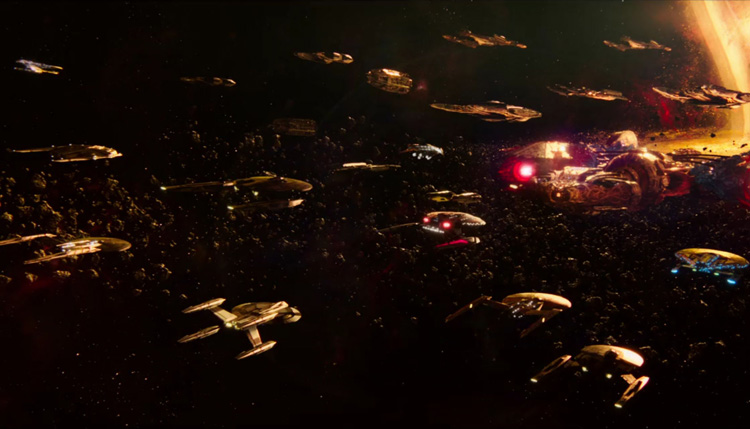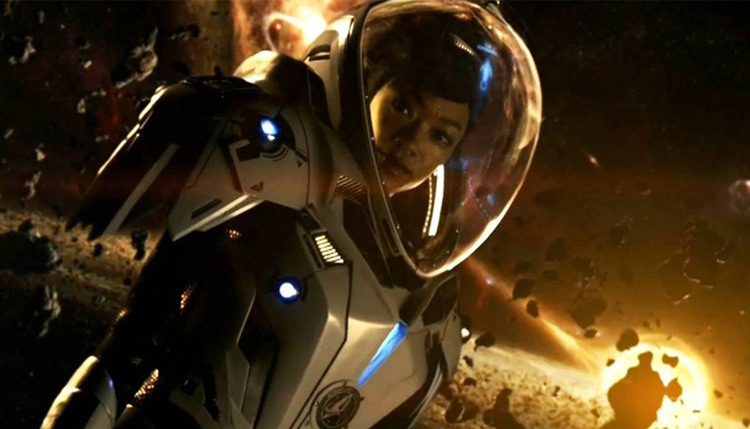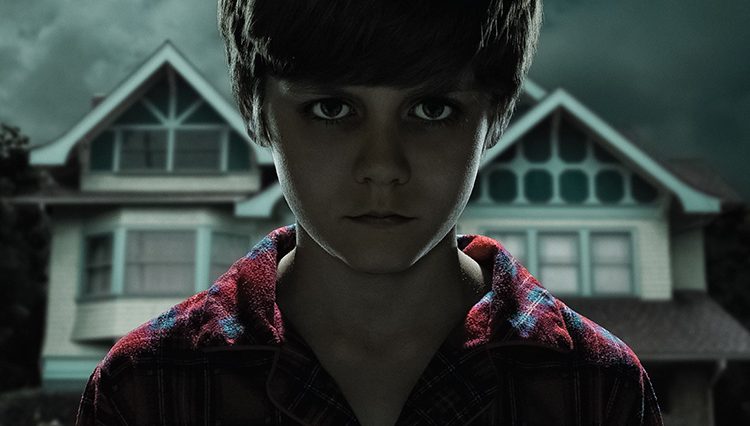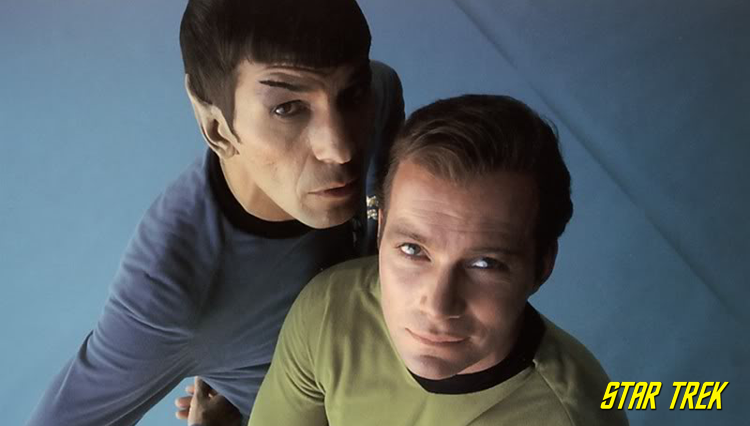
“You wanna know how I turned on you? I believed saving you and the crew was more important than Starfleet’s principles. Was it logical? Emotional? I don’t know.”
Hip deep in a mundane adventure setting, I begin to suspect the producers of Discovery want me to be so transfixed by the visual that I don’t question the narrative, but now that I’ve seen this episode three times I can not only question the narrative but the entire premise of the series. Michael Burnham has done something unconscionable in ending a debate with her captain by neck-pinching her, seizing power over the ship from her, hell-bent on a pre-emptive strike against Klingons. Worse, she thinks she’s braver, smarter, and wiser than her captain and crew by doing this. She’ll either never be proven wrong or dismiss any such claims, so don’t bother. This makes her an incredibly unlikeable character from jump-street. She’s a First Officer on a ship on a show written in 2017, and therein lies the disconnect.
The original series of Star Trek was written and produced by a majority of armed service veterans. Discovery is Star Trek as interpreted by Liberal Arts majors who spend more time reading (or pretending to read) comic books than changing diapers. It’s the wayward charm of the spectacle, the visual beauty, and space opera short-cuts that contribute to the anticlimactic chaos we’re watching. Burnham’s “I can’t let you do this. I’m smarter than you.” logic exists in strict defiance of the chain-of-command; the idea that she must follow that chain-of-command even if she’s convinced her captain’s actions may get her killed. Part of entering the Service is knowing that you may die at any given time in a combat situation.

This leads back to my central problem: the lead as opposed to the ensemble. We know nothing about these characters (and still don’t after two seasons) therefore any dramatic stakes mean nothing. Frankly, I don’t blame Discovery, rather the slavish devotion to story-arc, season-long narrative, hatred of authority, and obsession with mutually-assured destruction. “Battle at the Binary Stars” picks up where “The Vulcan Hello” left off, which is odd considering the truncated running time. The two episodes should have been combined into one pilot episode, but then CBS couldn’t corral viewers to their subscription-based CBS All Access service unless they dangled this carrot in front of them.
Captain Georgiou relieves Burnham of command and puts her off the bridge. In the middle of all this, we have intrigue with newly-redesigned Klingons. They are more alien and more dangerous-looking than ever before. There are several different “houses” of Klingon, like tribes each with their own differing interpretations of law, and they all argue incessantly while Starfleet forces appear in front of them. Starfleet (via Georgiou) wants to talk. The Klingons are obsessed with their purity so they open fire on the Starfleet ships. The battle scenes are spectacular but the shaky-cam makes me nauseous. Meanwhile Burham, in the brig, is still intent on interfering with all of this. She’s the star! A well-aimed laser blast takes out the deck on which the brig is based, so all she sees is a force-field and the stars beyond.

So much of this canon had been re-written to put Burnham in the center of all possible stories. She’s human, but was raised as an adopted daughter of Sarek and Amanda (Spock’s parents). She’s been slipped into the action like so much teenybopper fan fiction. The actress, unfortunately, has but one face and one expression and she says everything in the same tone. In the midst of battle, the Klingons get the drop on an Admiral’s ship and slice it open like a cantaloupe. It’s quite a cool effect. Klingon leader T’Kuvma is hailed as a messiah. Burnham manages to outwit the ship’s computer (what?) into releasing her from the brig. She goes to the bridge and specifically urges Georgiou not to kill T’Kuvma because his death would make him a martyr.
After planting a bomb on a Klingon body and detonating it when it is taken aboard, knocking out the ship’s primary power, Georgiou and Burnham beam aboard the ship where they engage T’Kuvma in combat. T’Kuvma kills Georgiou and Burnham kills T’Kuvma. I guess she didn’t remember her own warning. Burnham is beamed back and T’Kuvma does indeed become a martyr. Georgiou’s ship is destroyed and Burnham appears before a court-martial where she is stripped of her rank and status, and even then she can’t stop her lips from flapping. Somewhat poetically, she is sentenced to life imprisonment, but none of this will matter because Michael Burnham is an artificial hero, too perfectly written to either be taken seriously or fail stupendously.
Twice a week, Star Trek Rewind explores the Star Trek universe. From Archer to Janeway, Kirk to Picard, and Georgiou to Sisko — boldly read what no one has read before!




